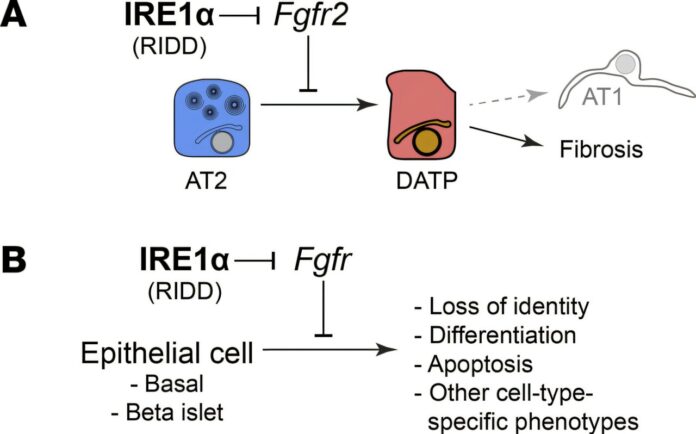A multi-institutional team from China and the U.S. has identified a molecule that may play a role in slowing the aging process in some animals consuming a restricted diet. The team has published two papers on their work in the journal Nature.
David Sinclair with Harvard Medical School has published a News & Views piece in the same journal issue giving a short history of the search for factors involved in health promotion associated with restricted diets and the work by the team on this new effort.
Prior research has shown that adhering to a low-calorie diet can promote health. Other research has also suggested restricted feeding can extend the lifespan of some animals, such as fruit flies and nematodes. Testing for such an effect in humans has proven to be too difficult, however, due to the long average human lifespan, leading medical researchers to look elsewhere for evidence.
One such avenue of research has been the study of molecules in the gut. For this new study, the team focused their efforts on lithocholic acid (LCA), a bile acid created by bacteria in the gut.
Prior research had suggested that LCA was a toxin, but more recently, researchers have found that in low doses, it can provide health benefits. Mice given LCA in low doses, for example, were found to produce more of a protein called AMPK, which has been linked to slowing muscle atrophy.
The work involved tracking changing levels of metabolites in the mouse gut when the mouse is put on a restricted diet. The researchers found hundreds of them. They then fed mouse cells the metabolites and found that LCA was a main driver of activation. That, the researchers suggest, hints at the possibility that LCA is the acid behind some of the health benefits seen by mice on restricted diets—but not their lifespan. They found no evidence of that in their testing.
That led them to conduct a second study to learn more about how LCA activates AMPK. They found that activation was dependent on signaling from certain members of the enzyme family called sirtuins. But that was as far as they got. The team plans to continue their research, hoping to pin down the benefits of LCA to humans, if there are any, or to find other metabolites that might be involved.
More information:
Qi Qu et al, Lithocholic acid binds TULP3 to activate sirtuins and AMPK to slow down ageing, Nature (2024). DOI: 10.1038/s41586-024-08348-2
Qi Qu et al, Lithocholic acid phenocopies anti-ageing effects of calorie restriction, Nature (2024). DOI: 10.1038/s41586-024-08329-5
David A. Sinclair, A bile acid could explain how calorie restriction slows ageing, Nature (2024). DOI: 10.1038/d41586-024-04062-1
© 2024 Science X Network
Citation:
Research reveals a molecule that may help slow aging while on a restricted diet (2024, December 19)
retrieved 25 December 2024
from https://medicalxpress.com/news/2024-12-reveals-molecule-aging-restricted-diet.html
This document is subject to copyright. Apart from any fair dealing for the purpose of private study or research, no
part may be reproduced without the written permission. The content is provided for information purposes only.


